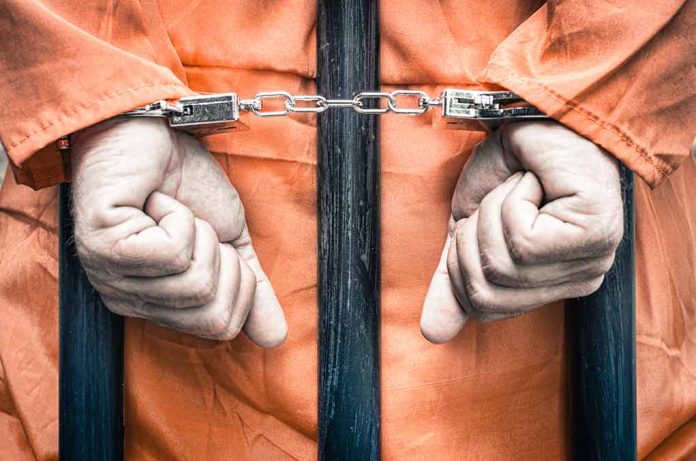
An anesthesiologist’s disturbing admission has exposed a severe abuse of both medical knowledge and personal trust.
At a Glance
- Paul Giacopelli, a New York anesthesiologist, admitted to drugging and sexually abusing his family’s nanny.
- The nanny’s suspicions led to the installation of a surveillance camera that documented the abuse.
- Giacopelli confessed to having a chloroform fetish and used his medical knowledge to procure and use Sevoflurane.
- He has been stripped of his medical credentials and faces a four-year state prison sentence.
Breach of Trust: Anesthesiologist’s Disturbing Actions
Paul Giacopelli, an anesthesiologist from Upstate New York, has pleaded guilty to drugging and sexually abusing his children’s nanny. The severity of his actions highlights an alarming abuse of medical knowledge. Giacopelli, 60, was indicted by a grand jury in March and arrested in December. The nanny, growing suspicious of recurrent blackouts, installed a surveillance camera that captured the horrors she endured.
Giacopelli’s criminal behavior involved administering Sevoflurane, a potent anesthetic, under the guise of a chloroform fetish. This extraordinary breach of trust by a medical professional within a household is a stark reminder of the power dynamics at play in caregiving environments.
Legal and Medical Repercussions
Upon the discovery of his actions, Giacopelli was stripped of his credentials as the chief anesthesiologist at Putnam County Hospital. His medical license was subsequently revoked by the state Board for Professional Medical Conduct. Despite the gravity of the situation, Giacopelli’s attorney claimed that his client is “focused on tending to his family” now that he has assumed responsibility for his crimes.
NY anesthesiologist with ‘chloroform fetish’ convicted of drugging, sexually assaulting kids’ nanny https://t.co/OnKG4uUgtO pic.twitter.com/VVhkdTIQqJ
— New York Post (@nypost) August 25, 2024
The nanny’s decisive action in installing a hidden camera not only confirmed her suspicions but also provided incontrovertible evidence. This led to Giacopelli’s questioning by the Putnam County Sheriff’s Office, where he admitted to targeting the victim due to her being a “heavy sleeper” and confessed to bringing stolen drugs home from the hospital. Dangerous substances like Fentanyl were found in his residence.
The Path to Justice
Giacopelli pleaded guilty to two violent felony offenses: Sexual Abuse in the First Degree and Assault in the Second Degree. His expected four-year state prison sentence is scheduled for November 20. Putnam District Attorney Robert Tendy commended the victim’s bravery, stating, “I’m very proud of the work of the Sheriff’s Department and Assistant District Attorney Melissa Lynch” but emphasized, “[B]ut I’m mostly proud of the victim’s courage in going through this process which led to the defendant’s arrest and conviction.”
The victim, employed to care for Giacopelli’s children and sometimes working overnight shifts, experienced blackouts on four occasions in late 2023. She reported smelling chemicals and losing consciousness after a rag was held over her face. Her courage in providing the video evidence to law enforcement was instrumental in bringing Giacopelli to justice.
An anesthesiologist with a "chloroform fetish" pled guilty to drugging and sexually assaulting his family's nanny while she stayed in his home.https://t.co/RBh3SJuR99
— Local 12/WKRC-TV (@Local12) August 25, 2024
Call for Action: Safeguarding Frameworks
This alarming case underscores the necessity for robust safeguarding frameworks and thorough psychological evaluations for individuals in powerful positions within households. Institutions must enforce strict regulations to ensure that professional expertise is not exploited for harmful purposes. Increased vigilance and preventive measures in caregiving environments are essential to protect the safety and consent of all parties involved.
The tragic misuse of medical knowledge and the severe breach of trust exhibited by Giacopelli highlights a dire need for systemic changes. It is critical to enact immediate and decisive actions to avert such abuses in the future and restore public trust in caregiving and medical professions.





